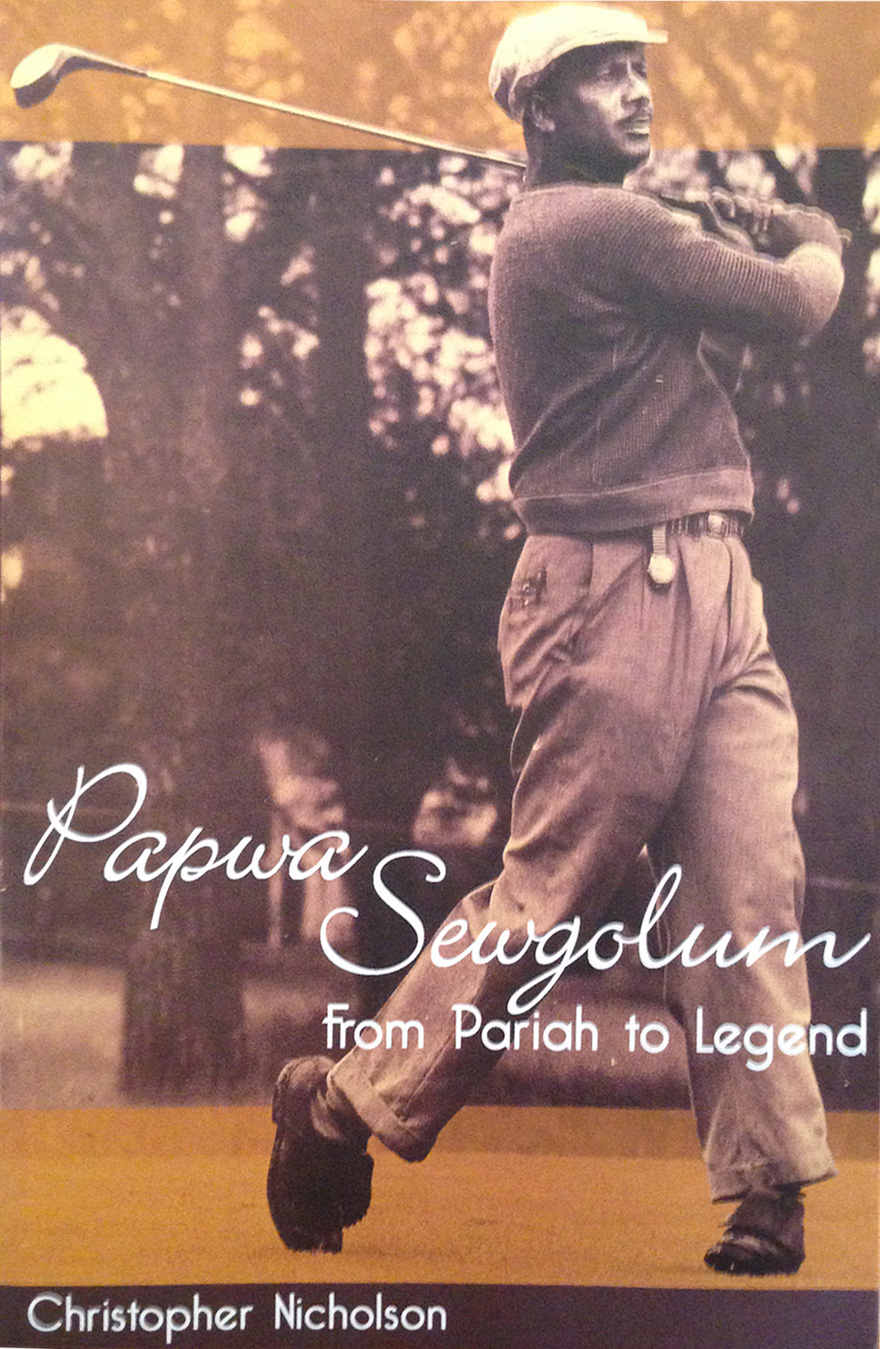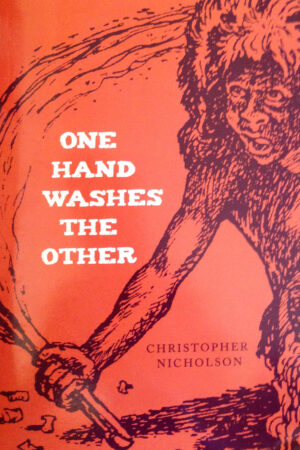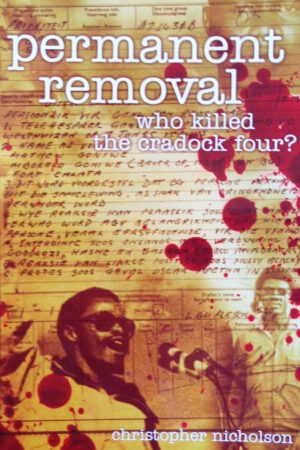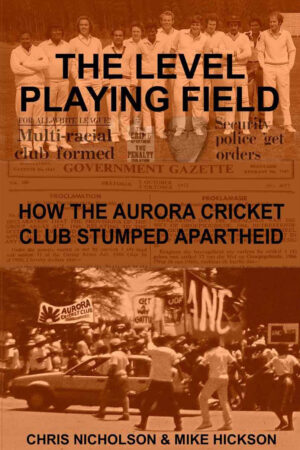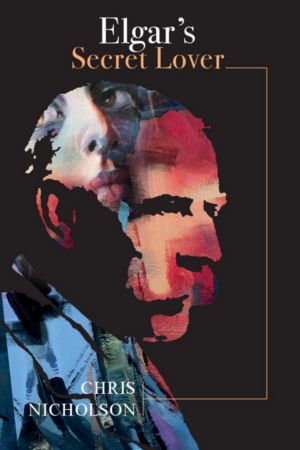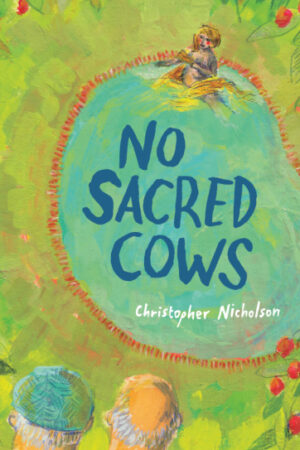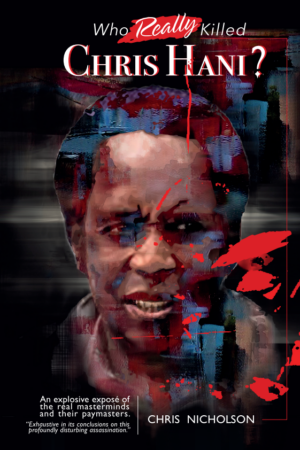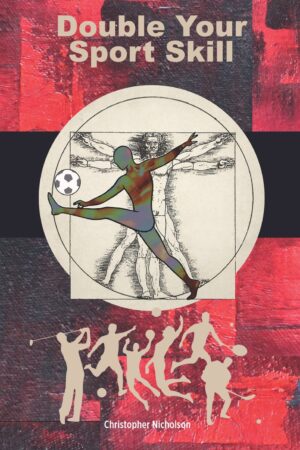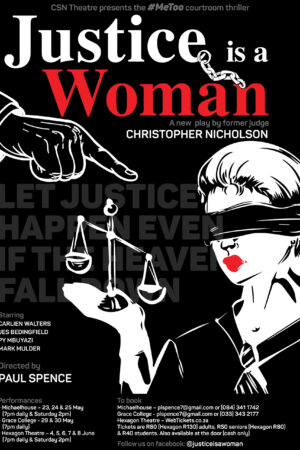Papwa Sewgolum
Please note: This is a downloadable PDF Ebook and not a physical book.
Papwa’s story is the South African equivalent of Chariots of fire — Andre Odendaal, author of The Story of an African Game.
Papwa Sewgolum acquired his first golf ‘club’, a roughly hewn wooden stick, when he was just seven years old, and spent hours hitting an old gold ball into a tin can buried in his back yard.
From these humble beginnings the impoverished and illiterate Papwa came to dominate South African ‘ non-white’ golf in the 1950s and 1960′s. The government’s apartheid policies meant he was barred from playing in white tournaments and his remarkable talent was denied recognition. Then Graham Wulff, inventor of Oil of Olay, personally flew him to Europe where Papwa won the Prestigious Dutch Open in 1959 (and again in 1960 and 1964).
For a short period where the South African government gave permission for him to compete with whites and despite his non-conforming ‘wrong arm’ grip, he won the Natal Open twice, on one occasion dramatically beating the great Gary Player. But Papwa was soon banned from playing in tournaments with whites, forcibly moved from his home under the Group Areas Act and unable to sustain his career, died penniless as an alcoholic.
Papwa Sewgolum: From Pariah to Legend juxtaposes the barefoot sportsmen of the world with the wealthy, and geographically brings to life the triumphs and tragedies of Papwa’s extraordinary career, family life and Hindu spiritual world.
Please note: This is a downloadable PDF Ebook and not a physical book.
R100,00
Description
The ‘story is gripping and moving… The contrast between the charming, barefoot black golfer with an unorthodox grip and the rich, pampered, decadent lifestyle of the whites-only South African golf clubs is splendidly portrayed… The text is enlivened with some fine photographs … Nicholson eschews the scholarly tome for a more popular, easy-to-read work that should find avid readers among sports fans, general readers, youth, and those interested in South Africa and of course golf. But there is also interesting comment here and there about politics, race, personalities such as Player and anti-apartheid sports activists…’
Peter Limb of Michigan State University
The life of Papwa ‘was superbly captured in a 2005 biography by Christopher Nicholson…’
Stuart McLean, Editor of Golf Digest in the March 2008 edition
An ‘eminently readable biography… Nicholson is masterful in his weaving of Sewgolum’s unique and, at times, rueful tale. He shies away from no aspect of Sewgolum’s life, dealing with everything from his tragic, early death to his infidelities, heavy drinking and partying. The author substantiates each insight with a wealth of material gleaned from one-on-one interviews and a fascinating array of quotes from the press reports of the day. Nicholson cleverly juxtaposes Sewgolum’s life with that of Player’s – illustrating two very different lives being lived out in the context of apartheid SA…his accounts of Olay founder Graham Wulff’s generosity and philanthropy are delightful…’
Cara Bouwer in The Weekender 27 January 2007
‘essential reading for any golf fan… But it will also be of interest to anyone with a historical bent –’ Rating given: four out of five.
Michael Vlismas in The Sunday Times of 10 July 2005
‘…[I]n the past few years significant books on football, rugby and cricket have appeared and with the publication of this memorable biography of Papwa Sewsunker Sewgolum, golf can now be added to that list… Nicholson skilfully interweaves this absorbing and readable account of Sewgolum’s life with that of Gary Player’s, calling them the “ugly sibling” and the “pretty twin” respectively…’
Christopher Merrett in The Natal Witness of 30 June 2005
‘The poignant and ultimately tragic tapestry of Sewgolum’s life…The author draws on political and social developments in South Africa during those years to contextualize the absurdities and tragedies of an inhumane system in which, in this particular case, one man simply wanted to play golf … the author paints a sinister picture around a titanic sporting struggle.’
Rodney Hartman in The Sunday Tribune and Independent for 17 July 2005
‘Writing a book about a legend, especially if that legend is from another race, needs not simply passion and courage but also a great deal of determination. It had to be a daunting task, because many racists must be unhappy with some matters that have been highlighted…The author has done a great deal of meticulous research and conducted a large number of interviews…The book is replete with lovely anecdotes … the way the judge has researched Hinduism’s effect on Papwa is impressive… Papwa’s great victories are graphically described and even for the non-golfer the book is eminently readable…’
‘In the previous era, some judges appeared to us to be aloof, alien, steely, supercilious beings who had little respect or regard for ordinary mortals and their everyday, often state-induced travails. Judge Nicholson proved to be made of a very different fibre… The human rights lawyer’s revulsion at how a great son of South Africa was treated simply because of what God happened to bestow on him is palpable…I salute this grand effort. Judge Nicholson has produced an eloquent, magnificent book.’
Dr Deena Padayachee in The Sunday Times Extra of 31 July 2005
‘… a valuable contribution to our understanding of the past in the context of the present…Most importantly, this book clears away much of the murk and misinformation that has peppered often angry exchanges about the 1963 incident that gave the greatest impetus to the international anti-apartheid sports boycott campaign… a highly informative book on a long overdue subject.’
Terry Bell, Sunday 21 August 2005 in City Press and also the London-based Africa Analysis.
‘the life and career of Sewgolum … is brilliantly told… this book is highly recommendable as it makes enjoyable reading and is very informative regarding the Apartheid era and the suffering that some prominent sports people underwent because of it.’
